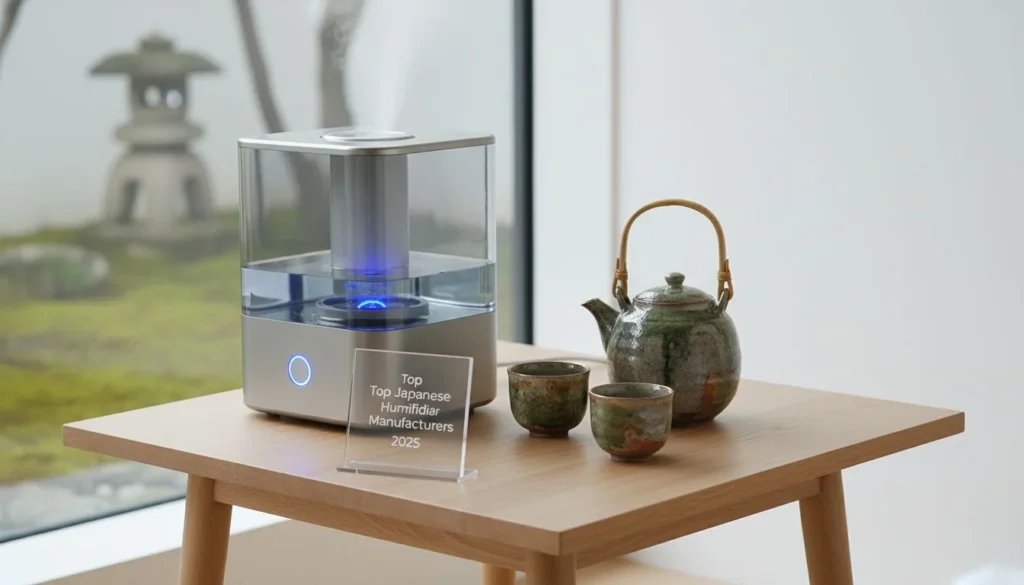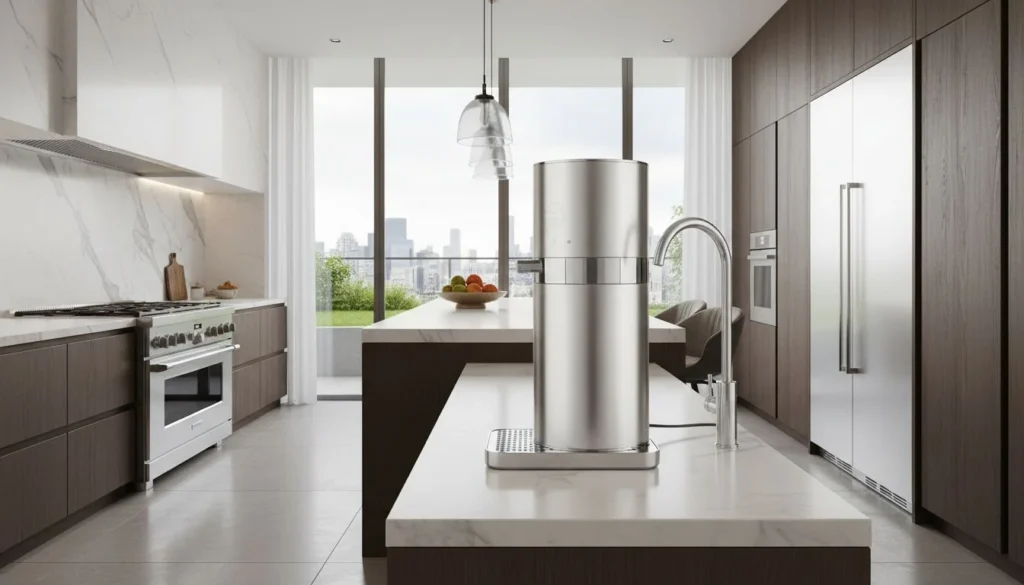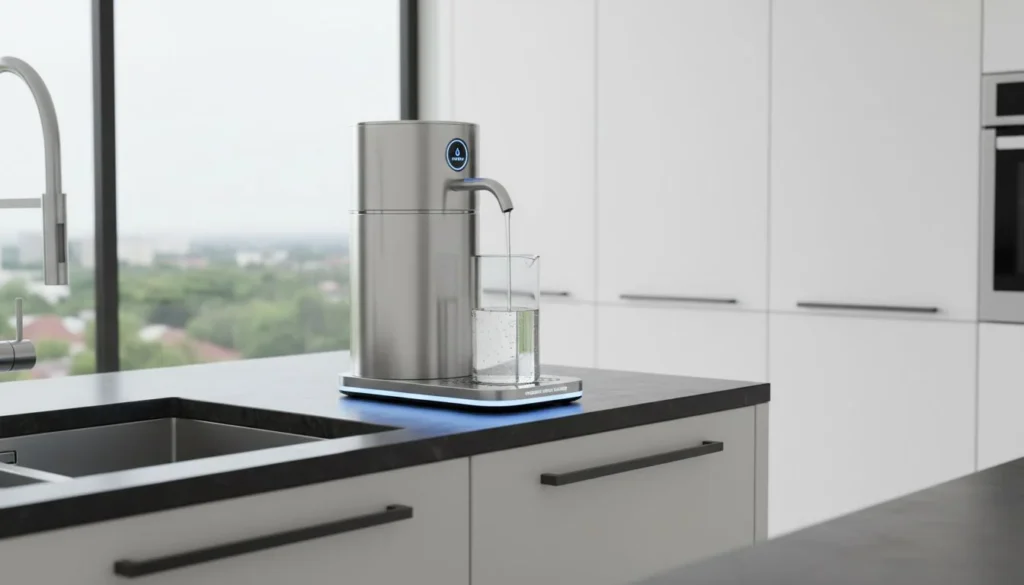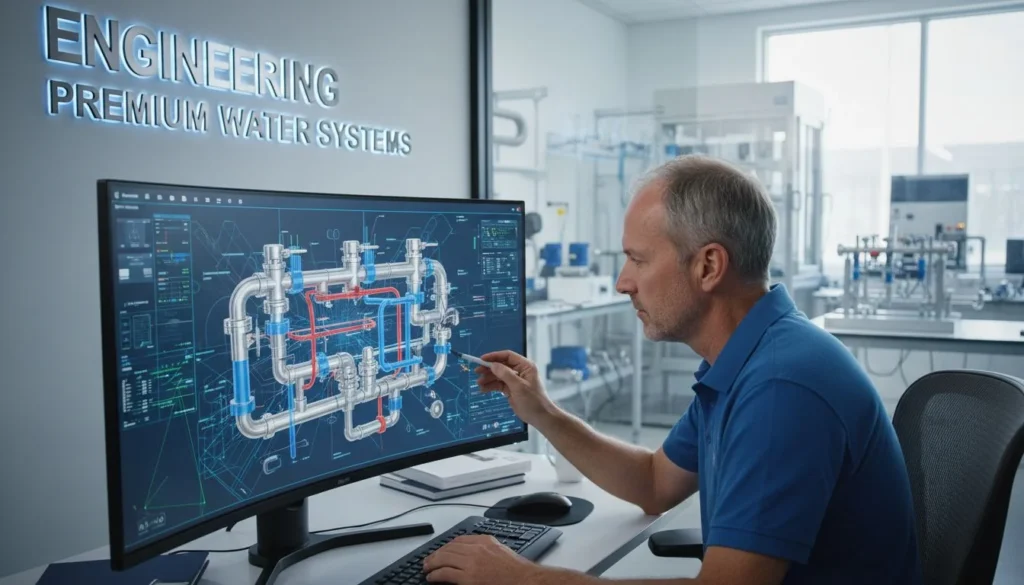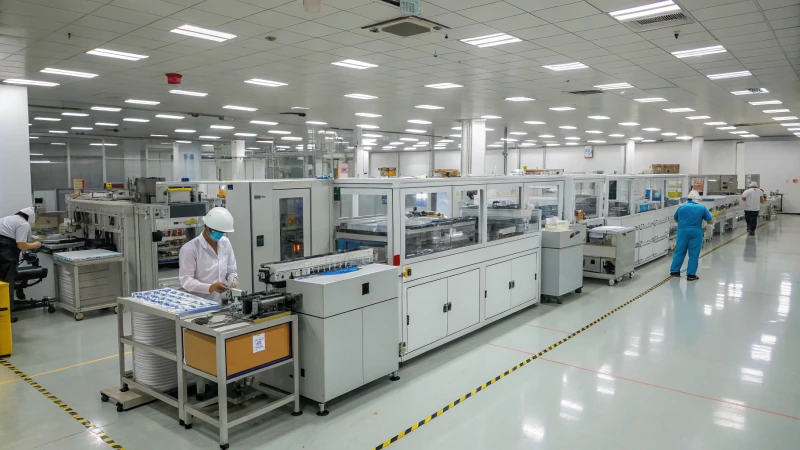
Curious people seek trustworthy air filter manufacturers in Thailand. This journey explores this fascinating industry. Thailand holds a prominent position in this sector. Many companies produce high-quality air filters there. Customers often prefer these reliable brands. This industry in Thailand is really interesting. Trustworthy products often emerge from experienced manufacturers. Many choose Thai brands due to their reputation. Become part of this journey and discover more.
Thailand has several reputable air filter manufacturers. One well-known manufacturer is LESHA Thailand. The market is changing because of trade tensions, which affects production. Knowing what these manufacturers offer helps you choose wisely.
I explored the world of air filters and found Thailand has some impressive manufacturers. LESHA Thailand stands out as an important company. Understanding their production skills and the problems they face is very important for anyone who wants to buy air filters successfully.
In this post, I share what I learned about the top air filter makers in Thailand. They have unique products. Global market changes are transforming local businesses. Discover what makes these companies really special. They adapt to the ever-changing needs for air quality solutions.
LESHA Thailand is a leading air filter manufacturer.True
LESHA Thailand is recognized as a significant player in the air filter industry, confirming its status as a leading manufacturer in the region.
Thailand has no reputable air filter manufacturers.False
This claim is false; Thailand hosts several reputable manufacturers in the air filter sector.
What Factors Influence Air Filter Manufacturing in Thailand?
Did you ever think about what goes into creating those air filters that we often overlook? Air filter production in Thailand involves many detailed factors. Economic changes, new technologies and changing market needs all influence this process.
Many factors shape air filter production in Thailand. Economic changes from U.S.-China trade relations very much affect it. New technologies in production methods play a big role. Rules and regulations are important to follow. People's desire for cleaner air is also changing. Cleaner air is a key need for consumers today.

Economic Factors Affecting Air Filter Manufacturing
Reflecting on my path in the air purification world is inevitable as I explore this topic. It amazes me how all things connect. Choices in distant boardrooms affect plans here in Thailand.
Thailand's economy is key for air filter makers like myself. When the U.S.-China trade dispute erupted, everything shifted in our sector. Many began relocating to Thailand to dodge high tariffs. The China+1 strategy1 idea spread quickly. It was interesting to see, like chess players planning their moves.
Moreover, labor costs here are much lower than in Western countries, attracting businesses wanting lower expenses. Yet, rising production costs come from importing needed items like special fabrics and molds, which can be 10-15% higher than those in China. It’s a delicate balance.
| Economic Factors | Benefits | Challenges |
|---|---|---|
| Lower Labor Costs | Attracts foreign investment | Rising import costs |
| Strategic Location | Access to Southeast Asian markets | Dependence on global trade dynamics |
Technological Advancements
Technology evolves constantly, thrilling and challenging us. Automation and precision engineering have greatly improved our productivity. Companies like HisoAir invest heavily in new technologies for better products.
I recall adopting Decibel Cancellation™ technology2. It changed everything. Products became better and quieter, meeting the growing need for effective systems. Leading such innovation is truly exciting!
| Technology | Benefits | Challenges |
|---|---|---|
| Automation | Increased efficiency and reduced costs | High initial investment |
| Precision Engineering | Enhanced product quality | Requires skilled workforce |
| Advanced Materials | Improved performance and durability | Dependency on imports |
Regulatory Environment
Understanding Thailand's regulatory world is crucial for air filter manufacturing. Compliance with environmental rules is not just legal; it’s vital for entering big markets like the U.S., which has tough air quality laws.
Additionally, the Thai government promotes foreign manufacturing investment with incentives. It’s like finding a treasure chest! Knowing how to use these regulations is crucial for growth.
Market Demand and Consumer Preferences
Market demand is rising fast as awareness of air quality increases. As a clean air enthusiast, I relate to this change; this awareness fuels the need for better filtration solutions, motivating us to innovate more.
Big retailers like Walmart are offering more air purification products, creating a competitive landscape that pushes manufacturers to innovate continuously. Staying aware of trends and consumer opinions is essential for success in this changing scene.
In short, economic factors, technology, regulations and consumer demands all shape air filter manufacturing in Thailand. It’s a constantly changing story. I am thrilled to be part of it as we adjust to global shifts and consumer needs.
Thailand benefits from lower labor costs for air filter manufacturing.True
Lower labor costs in Thailand attract manufacturers, optimizing operational expenses compared to Western countries, enhancing competitiveness in the air filter sector.
Technological advancements are irrelevant to air filter production.False
This claim is false; technological advancements significantly enhance efficiency and product quality in the air filter manufacturing industry.
How Do Thai Air Filters Compare to International Brands?
Do you ever think about how Thai air filters compare with the famous brands in the industry? Many people worry about air quality more these days. Let's explore this comparison and find out what really makes these filters different.
If you compare Thai air filters with international brands, products like HisoAir are becoming strong rivals. These filters provide good prices and better quality. Often, they use imported materials but still give local benefits. Consumers really start to notice air quality more and more.

Breathtakingly Fresh Air
Breathtakingly fresh air is very important to good health. I have noticed this while learning about air filters. Interest in air quality keeps rising. So, I looked into different choices, especially Thai brands such as HisoAir. These brands grabbed my attention because they compete with big international companies. This journey of discovery is something I really want to share!
Quality and Manufacturing Standards
When comparing Thai air filters to international brands, it’s essential to evaluate their quality and manufacturing standards.
Thai manufacturers like HisoAir are increasingly investing in advanced technology and production facilities to meet global standards.
In contrast, many international brands, particularly those based in the US and Europe, have established quality control systems that ensure high-performance products.
| Brand | Country of Origin | Quality Certification | Notable Features |
|---|---|---|---|
| HisoAir | Thailand | ISO 9001 | Decibel Cancellation™ technology |
| Xiaomi | China | ISO 14001 | Smart features and app connectivity |
| Coway | South Korea | CE, UL | High filtration efficiency |
This table illustrates how different brands prioritize quality and innovation in their products.
Cost-Effectiveness
I also found cost-effectiveness interesting. Thai filters are priced competitively because of lower-cost production. However, they sometimes cost 10-15% more than similar Chinese products due to imported materials like meltblown fabric and precise molds.
Purchasing Thai filters might be a good investment if you prioritize supporting local industries while still obtaining reliable air purification solutions.
Availability and Market Trends
Delving into market trends was eye-opening. Many firms shifted production to Thailand to avoid Chinese tariffs. This shift has become especially clear due to trade tensions.
As the demand for air filters continues to rise globally, brands are responding by diversifying their supply chains, including establishing facilities in Thailand.
This shift could lead to an increase in the variety and availability of air filters in the Thai market. For those interested in the current trends, it's worthwhile to explore more on air filter market trends3.
Consumer Preferences
Consumer preferences play a significant role in how Thai air filters stack up against international brands. Many consumers in Thailand are becoming more aware of air quality issues, particularly in urban areas.
Brands like HisoAir adapt by adding advanced features while staying affordable. Anyone curious about what buyers want might explore consumer insights on air purifiers4.
Conclusion and Future Outlook
Looking back, I see that Thai manufacturers and international brands are innovating fast as they strive to handle air quality issues. The future might see a blend of local craftsmanship combined with global best practices.
As demand for eco-friendly air solutions grows, ongoing research investments are likely to shape the industry landscape. For those looking to stay updated on these trends, checking out future trends in air purification5 could really help those interested in this field.
Thai air filters are often cheaper than international brands.True
Thai air filters typically have lower production costs, making them more affordable compared to many international brands, though they may still be pricier than some Chinese products.
HisoAir holds an ISO 9001 certification for quality.True
HisoAir, a Thai manufacturer, has achieved ISO 9001 certification, indicating adherence to international quality management standards in their air filter production.
What Innovations Are Emerging in Thailand's Air Filter Industry?
While exploring Thailand's air filter industry, surprising innovations appear everywhere. An urgent need for cleaner air drives this exciting progress. The industry buzzes with new technologies. These promise to transform the situation. What are these remarkable advancements?
The air filter industry in Thailand is seeing exciting innovations. Advanced manufacturing technologies appear in new products. Companies are exploring sustainability initiatives. Air purification systems include smart features now. Companies like HisoAir lead these developments. They address urgent air quality concerns. They also focus on the user experience.

The Shift of Manufacturing to Thailand
Global events, especially trade tensions between the US and China, have changed the manufacturing world. Many companies are moving their factories to Thailand. This country is now a big hub for air filter production because it is close to China. This move lets businesses avoid high import taxes and keep supply chains stable. Thailand becomes a popular place for manufacturers.
- Key Players: One key player in this change is HisoAir. This company has set up in Thailand and focuses on the US market. Their actions create jobs for local people and make the country’s manufacturing industry stronger. This development is not only important; it is inspiring.
Innovations in Production Technologies
In the Thai air filter industry, companies welcome new technologies. They use advanced processes to improve efficiency and quality. Some groundbreaking methods include:
- Injection Molding: This method shapes filter parts with great accuracy, resulting in less waste and better products.
- Meltblown Technology: This important process helps create fine filter materials. More local suppliers mean it’s easier for manufacturers to get materials.
| Technology | Description | Benefits |
|---|---|---|
| Injection Molding | Shapes filter parts with great accuracy | Reduces waste and improves quality |
| Meltblown Process | Creates fine filtration media | Improves accessibility of materials |
Focus on Sustainability
Rising air quality concerns push Thailand to focus on sustainable practices in the air filter industry. Companies decide to use environmentally friendly options:
- Recyclable Materials: Choosing materials that are easy to recycle reduces environmental impact. This choice matters.
- Energy-Efficient Processes: Production methods are being optimized to save energy, aligning with global goals for sustainability.
For more about sustainability in air filtration, you may explore sustainable practices6.
Advanced Air Purification Features
Innovations continue beyond production. New features in air filters are very exciting:
- Decibel Cancellation™: This smart technology from HisoAir cuts down noise from air purifiers, making homes much quieter.
- Smart Technology Integration: Envision filters with sensors that monitor air quality and change filtration levels instantly; it’s like having a personal assistant for your air.
Market Growth and Consumer Demand
As awareness about health and air quality grows, the demand for air purification products in Thailand increases significantly. People become more health-aware, seeking effective solutions. This need probably continues to rise as the government tightens air quality rules.
For more on market trends, look at air quality regulations7.
Thailand's air filter industry is shifting towards sustainability.True
The industry is adopting eco-friendly materials and energy-efficient processes to reduce environmental impact.
HisoAir is the only manufacturer in Thailand's air filter market.False
While HisoAir is a key player, other companies are also emerging in Thailand's air filter industry.
What Challenges Do Manufacturers Face in Sourcing Materials?
Do you ever think about how manufacturers find materials in a complicated world? I know how these problems affect factories and the core of a company. Let's explore this detailed environment.
**Manufacturers really struggle with problems in the supply chain, following rules, controlling quality and dealing with money issues during material buying. These problems affect how products are made, their price and how happy customers feel. Understanding these is very important to doing well in today's manufacturing world.
Global Supply Chain Problems
I remember a time when I worked on a project needing materials from other countries. Suddenly, we had big supply chain problems because of COVID-19. Delays increased, shipping prices really went up and our production plans were in trouble.
Many manufacturers now depend on global logistics. Relying on international suppliers means even small problems lead to extra time and higher costs. I looked for other suppliers and thought about local options. This approach wasn't easy but really helped lower risks.
Problems at ports and freight services showed we needed new logistics plans. Adapting to changes felt never-ending. Still, this experience pushed me to find more suppliers and think of creative ideas. Learn more about supply chain problems.
Regulatory Challenges
Dealing with different rules in each country was a hard learning process for me. Each place has rules on safety, environment and labor, making following them hard. I remember a tough time importing materials from a place with strict environment rules. We needed to document everything carefully, which sometimes felt too much.
This added complexity, cost and time. Following rules tested how strong our team was. But I learned that training and keeping updated helps avoid problems and keeps things running well. Explore compliance strategies.
Quality Control Problems
Quality control matters a lot to me as a manufacturer. Getting different quality materials from suppliers worries me as it leads to product defects. I once faced a costly recall due to a quality issue - something I wish to avoid always!
Stopping such problems meant having strong quality checks. We increased inspections and tests before production started, sometimes feeling like a race against time and costs. But ensuring good quality is very important for keeping our reputation safe and customers happy. Discover quality control methods.
Financial Pressures
Lastly, let's discuss financial pressures that are always a problem for manufacturers. I've seen raw material prices change quickly due to market demand, forcing us to rethink our budgets again and again. It's about balancing costs without lowering product quality - a careful act needing constant attention.
Sometimes, passing increased costs to consumers is the only way, risking our market position. Through this journey, innovation and smart financial planning can really help handle these pressures well. Understand financial management.
In short, manufacturers face many challenges in sourcing materials - each offering a chance to grow and learn with the right mindset and planning. As I continue dealing with this complex world, I remain hopeful these challenges bring better practices and solutions for the future.**

Challenges in Material Sourcing
Manufacturers often encounter many challenges when they need materials. Supply chain problems, government rules, and quality issues often arise. Each challenge greatly affects production speed and expenses. These challenges remind me of my own experiences in this industry.
| Challenge | Description | Potential Solutions |
|---|---|---|
| Supply Chain Disruptions | Delays and increased costs due to global logistics issues. | Diversifying suppliers; local sourcing. |
| Regulatory Challenges | Navigating varying international regulations and compliance requirements. | Staying updated on regulations; training. |
| Quality Control Issues | Inconsistent material quality leading to product defects. | Robust quality assurance; regular audits. |
Financial Pressures
Finally, financial pressures can limit manufacturers' ability to source materials effectively. Rising costs for raw materials due to market demand fluctuations make budgeting difficult. Manufacturers must frequently reassess their financial strategies to cope with these changes.
This includes evaluating the cost-effectiveness of sourcing strategies and potentially passing some costs onto consumers. However, this can lead to decreased competitiveness in the market. As a result, manufacturers must find a delicate balance between cost control and maintaining product quality. Understand financial management8.
In summary, manufacturers today encounter a myriad of challenges when sourcing materials, from global supply chain disruptions and regulatory hurdles to quality control issues and financial pressures. Each of these challenges requires careful consideration and strategic planning to ensure successful operations.
Global supply chain disruptions affect material sourcing.True
Supply chain disruptions, worsened by the pandemic, hinder manufacturers' ability to source materials efficiently, causing delays and increased costs.
Regulatory compliance is not a challenge for manufacturers.False
Manufacturers must navigate complex regulations that vary by country, making compliance a significant challenge in material sourcing.
Conclusion
Discover leading air filter manufacturers in Thailand, focusing on LESHA Thailand's role amidst global trade shifts, technological innovations, and increasing consumer demand for cleaner air solutions.
-
This link will provide insights into Thailand's air filter manufacturing landscape, including economic influences and market trends essential for understanding this sector. ↩
-
Explore the latest technological advancements that are transforming air filter production in Thailand, making it crucial for manufacturers to stay competitive. ↩
-
This link provides detailed insights on market trends that could influence your purchasing decision. ↩
-
Explore consumer insights that highlight preferences and demands in the air purification market. ↩
-
Stay informed about future innovations in air purification technology. ↩
-
Discover how Thailand's air filter market is evolving and what innovations are shaping its future. ↩
-
Learn about the regulatory landscape affecting air quality and filtration solutions in Thailand. ↩
-
Explore financial strategies that can assist manufacturers in managing costs while sourcing materials. ↩


